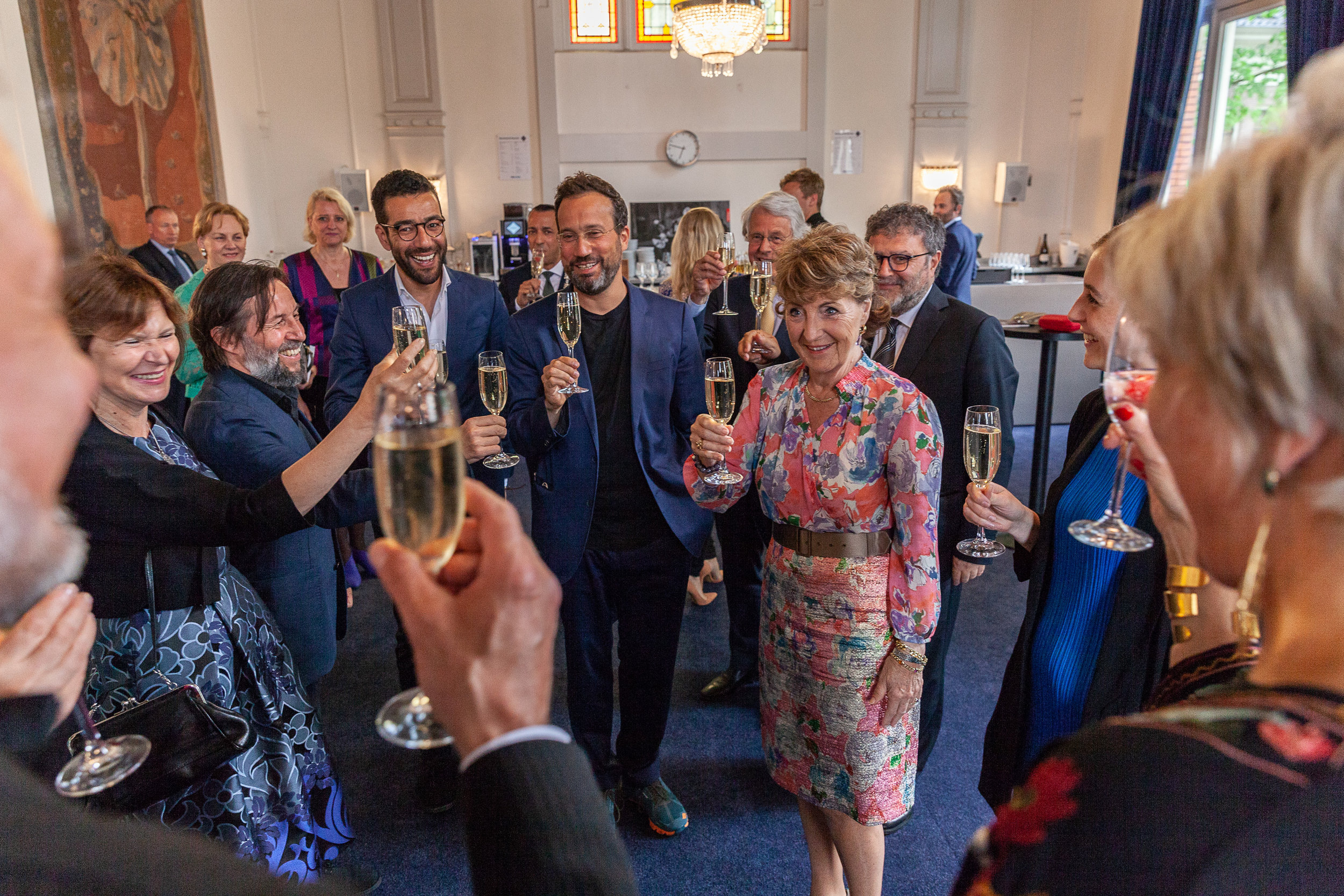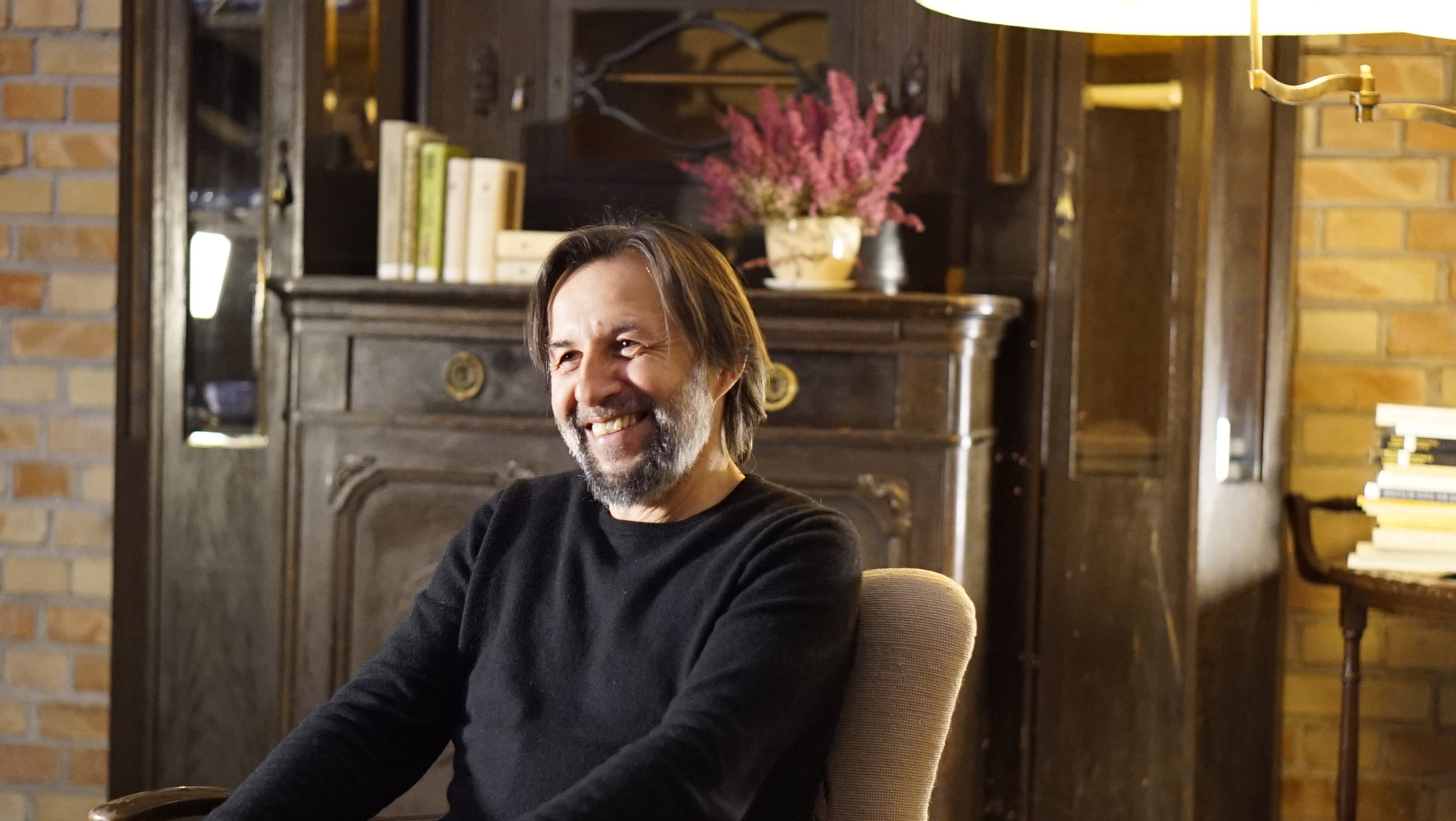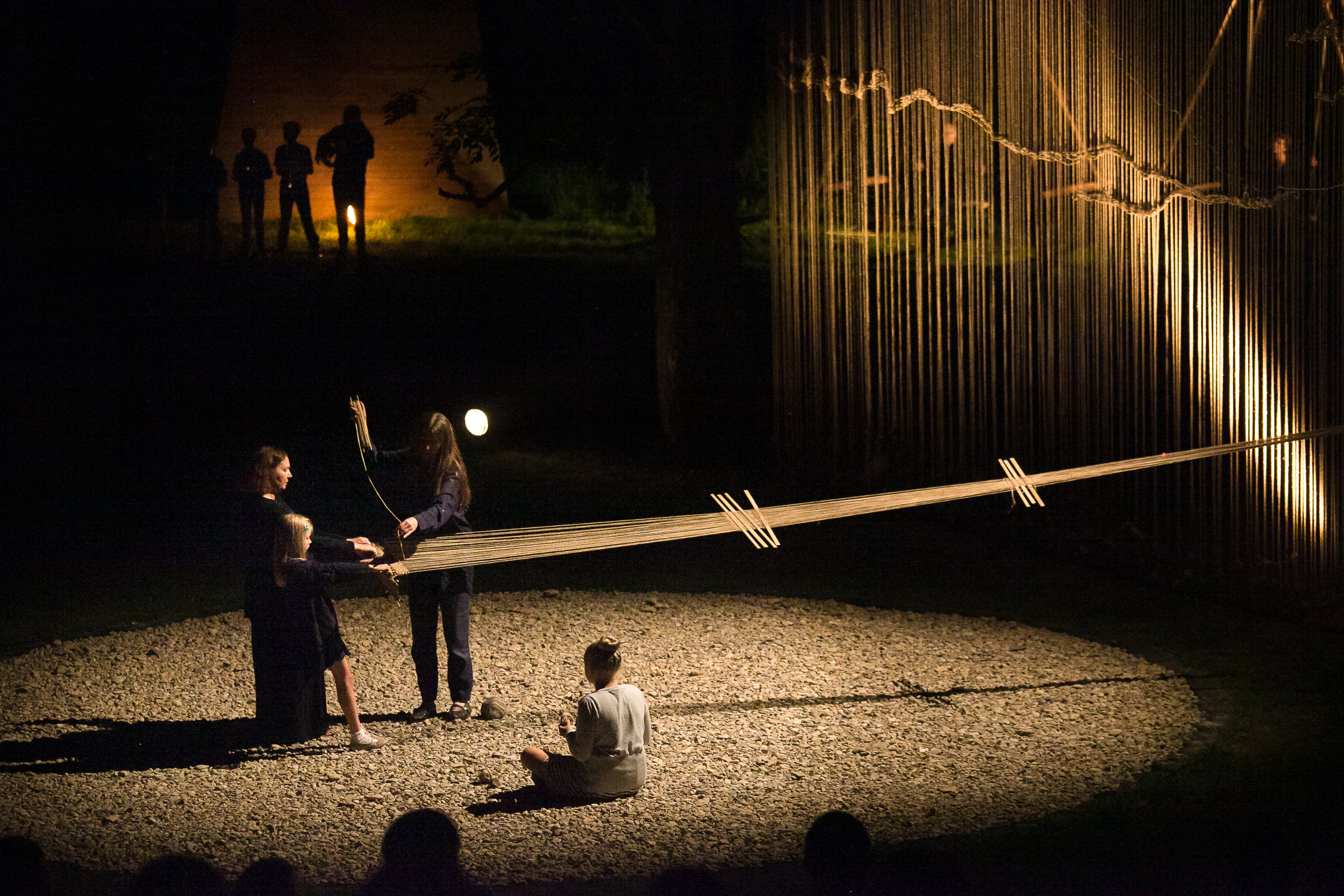Update on 24 June 2016
This 24 June, the UK woke up to the news that 52% of Referendum voters had chosen to leave the EU. This choice will certainly have both short and long term economic, political and social impact in every corner of the UK and across Europe as a whole. And it is not yet clear what shape and scope that impact will take.
Nevertheless, we do want to highlight that 48% of the UK voters did vote to “remain in the EU”. There are millions of people – among those our partners, artists and cultural actors who are committed to the need for cooperation, co-creation, expanding creativity and making things happen across all borders - and that we are all better together than apart, or alone.
The Referendum results show us we have a lot of work to do, but also that we must remain hopeful, solidary and look to the longer term. ECF will continue to catalyse, connect and communicate the amazing work that people are doing that brings us closer together. And this work is not only urgent between the UK and Europe, it is necessary in wider Europe. This vote will certainly affect other European countries and many politicians will use this as a spring-board to lead more dividing discourse within their societies. Culture has a vital role to play in helping to balance this discourse.
We want to say to all of our partners, stakeholders and friends: we are here. We believe in Europe and in the power of culture to bridge divides and build stronger, more open and inclusive societies.... today more than ever.
The following was published on 16 June 2016:
The current debate surrounding the upcoming UK referendum is also accompanied by questions regarding the value of EU membership by other Member States as well. Whatever the outcome of the referendum – Brexit or Bremain - it will have questioned the raison d’être of the European Union and the relationships to its individual members and partners. At ECF, we consider this debate to have as much a political, financial, economic as a cultural dimension. It relates to our understanding and feeling of the European Union, the way we engage with it and connect to it. Culture plays an essential role in this context as it shapes the way we project ourselves in the future. This is why we have collected some background reading that informs the debate and assesses the role culture plays in this debate.
Artist Wolfgang Tillmans has designed a series of posters to encourage people to vote Remain. Find out more on his website.
Our plea for “more Europe in the Union, and more union in the Union" - to quote EC President Jean-Claude Juncker, is echoed in a speech by ECF Head of Advocacy, R&D and Knowledge Management Isabelle Schwarz, delivered at a debate on ‘Brexit: to stay or to go, is that the question?’ organised by European Movement in the Netherlands and Netherlands Society for International Affairs in The Hague on 15 April 2015. Below are a few fragments:
“The referendum encapsulates the drive of individual Members States to secure their national aspirations and interests within the Union rather than to consider themselves contributing to a bigger picture. In the case of Britain, the vote on its membership is promised to end a lengthy and unsettling debate but instead it will usher in more discussion contributing to greater uncertainty. Nobody knows of the time-span and the full implications the change of treaties will entail should the outcome be a leave vote but whatever the result of the referendum it will have deep repercussions for Europe, for European and for UK integration.
As Vice-President of ECF Rien van Gendt said, “Europe has always been more than coal and steel, free trade and one currency.” Europe is about its people. Europe is about its culture. And the EU is as much a political as a cultural project as it projects values and beliefs, associates different political cultural traditions and aspirations. Culture is essential for creating emotional bounds to Europe, and this is what motivated the founding fathers of the European Cultural Foundation (Denis de Rougemont, Robert Schuman, Prince Bernhard of the Netherlands) when creating the European Cultural Foundation in 1954 in Geneva, and since 1960 based in Amsterdam. This vision of Europe that is more than an economic association of nation states and should rise beyond the fractious divisions that the nation has engendered– is still the political ambition of ECF. We support, connect and advocate for culture not because it is a nice to have, when all other needs are satisfied, but because it is a cornerstone to building Europe.
Artists and creatives have the capacity to make us think out of the box and imagine creative solutions, and alternative ways to respond to societal challenges. They foster resilient communities and encourage critical thought. As one of the major thought-leaders within the Anglo-Saxon world, Jamaican-born cultural theorist and sociologist, and 2008 ECF Princess Margriet Award for Culture Laureate, the late Stuart Hall said: “In the arts, things get said in a way that can’t be said in any other domain”.
Art allows possibilities rather than impossibilities. It creates spaces for creative confrontation, exchange and dialogue, spaces that allow the negotiation of differences by listening to and engaging with the other while being open and welcoming. And this is exactly what Europe needs, today more than ever, so to be able to re-imagine and re-invent itself within a multi-polar world.
The UK referendum on EU membership focuses on interests and benefits but also concerns the redefinition of the UK’s identity which has to do with culture, narratives, self-perception and imagination. In an ever more complex, connected, and interdependent space, culture in its broadest sense – so yes the arts but also participatory practices and processes - can help us to deconstruct mental patterns and shape new mindsets, in tune with 21st century needs and realities. It can contribute to the definition of our uniqueness through inter-dependency.”
It is this cultural inter-dependency which also counts for Member of European Parliament and alumni of our Tandem programme, Julie Ward when she joined the ranks of more than 250 British artists who send an open letter to the Guardian to remain in the EU:
“The creative sector has added yet another compelling voice to the economic argument for a vote for Britain to remain in the EU. But more importantly, the cultural sector has reminded all of us that this referendum is about so much more than economics. Culture and the arts have always played an important role in the European project, bringing people together across borders to celebrate humanity, explore the more complex questions we each face in life and promote health and wellbeing.”
However, the economic argument put forward by proponents of the British exit can be countered very effectively as is shown in the book Brexit. The politics of a bad idea by Social Europe. We therefore direct our view to cultural arguments again. How would a Brexit change the cultural scenery of London is touched upon in an article of VICE magazine. In an article in Political Critique, writer Anna-Cara Keim compares the situation to a crisis in a marriage – is divorce always the solution?
“The Brexit debate is a good moment for such “problem-solving” – to challenge and change the current discourse on Europe, to focus on making the EU more democratic, more sustainable and more transparent.”
As ECF, we would like to also add, more of a cultural project.
We understand the need to place our cultural arguments in a wider frame, including the historical perspective. Which is what the European Policy Centre did through the publication of a collection of essays on the Britain's historical and future role within Europe, free to download.
Europe’s World invited a whole range of publicists to contribute to their dossier on a possible Brexit – including a piece by Isabelle Schwarz entitled "Culture could be the answer to Europe's woes", available to read in our Library.
In 2013, ECF supported the project Reframe: Perspectives on Europe through Comics from Algeria, Turkey and the UK. We invite you to read the comics created by the three UK based artists: Hannah Berry, Daniel Locke and Ilya. Their contribution is more relevant today than ever, so below we compiled a few quotes from their statements and added the links to their 2-page comics.
A fragment from Daniel Locke's 2-page comic made as part of the Reframe project ECF supported in 2013.
ILYA: Mix and Match: Around Europe in Thirty Frames
As a UK citizen, I am troubled by Britain’s hugely equivocal stance when it comes to the European Union and our place within it. Britain has been a member state since 1973 – nearly my whole life – but to hear most of its people talk, and the way our simplistic ‘news’ feeds continually carp about Brussels ‘madness’, you wouldn’t think it.
Hannah Berry: Europe Welcomes Careful Drives
At the country’s wheel, there are people who... shall we say... look after their own interests. Interests that do not coincide with the best interests, or sometimes even the rights, of citizens. And while the EU represents for many people a barrier in their absolute freedom to manoeuvre, it represents for the rest of us the last line of defence for our human rights.
Daniel Locke: EUROPA
Like many people in the UK (and across Europe generally), I have close emotional and social ties to a number of other countries; for example, my wife is half Danish and much of her family lives in Denmark. I have dear friends in Poland and Greece, as well as good Polish, Italian, Spanish and French friends living here in the UK. I believe that this communication and movement across national boundaries leads to a greater degree of sharing of ideas and ways of living that is beneficial to us all.




























































